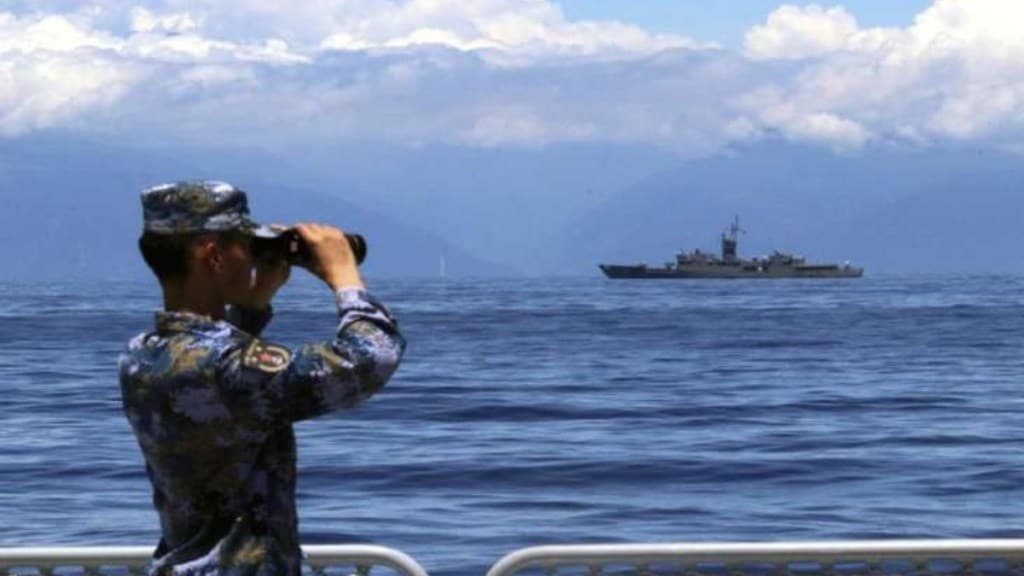Taipei eagerly anticipates joining hands with India and other like-minded nations to strengthen the global supply chain and ensure peace and stability in the Taiwan Strait and the broader Indo-Pacific region, emphasized Baushuan Ger, the de-facto Ambassador of Taipei.
In the face of ongoing military pressure and ambiguous threats, Taiwan remains steadfast in its commitment to bolstering self-defense capabilities and contributing positively to the international community, without openly mentioning the nation causing concerns – China.
These remarks were made during a special reception celebrating the upcoming Taiwanese National Day, set to take place on October 10. The ambassador stressed Taiwan’s pivotal role in securing a robust global supply chain, particularly highlighting its dominance in the semiconductor sector.
Semiconductors: India & Taiwan
Taiwan currently produces nearly 60 percent of the world’s semiconductors, along with over 90 percent of advanced chips used in an array of electronic devices. This includes smartphones, automotive components, data centers, fighter jets, and cutting-edge AI technologies.
Notably, India has expressed a strong interest in establishing a manufacturing facility for the Taiwan Semiconductor Manufacturing Corporation (TSMC), the world’s largest chipmaker, which counts tech giant Apple among its clients.
Historical Background
It’s crucial to bear in mind that China views Taiwan as a breakaway province and seeks reunification, even if it necessitates the use of force. In stark contrast, Taiwan steadfastly maintains its identity as a separate entity from China.
India-Taiwan
The historical partnership between Taiwan and India has been nurtured over the years, driven by their shared commitment to democracy, freedom, human rights, and the rule of law. While diplomatic relations between the Republic of China and the Republic of India were briefly established between 1947 and 1949, it was not until 1995 that Taiwan and India re-established representations in Taipei and New Delhi.
In addition to the existing Chennai office established in 2012, Mr. Ger announced the forthcoming opening of the Taipei Economic and Cultural Center in Mumbai early next year. These missions, including the recently established Chennai office, will serve as hubs for collaboration, fostering deeper ties between Taiwan and India.
New Southbound Policy
Taiwan’s “New Southbound Policy” and India’s “Act East Policy” have remarkably aligned on the economic front, resulting in substantial growth in bilateral trade. In 2022, the bilateral trade volume reached an all-time high of US$8.4 billion, marking a 10 percent increase compared to the previous year. India stands as Taiwan’s 17th largest trading partner, with Taiwanese enterprises investing more than US$4 billion across diverse sectors, including footwear, machinery, automobile components, petrochemicals, and ICT products, under India’s “Make in India” initiative. This extensive collaboration has been further facilitated by mutual agreements related to intellectual property rights, product standardization, and traditional medicine. Mr. Ger expressed optimism about further expanding trade and investment with additional mutually beneficial arrangements expected to be concluded in the coming years.
Education
In the realm of education cooperation, Taiwan has established 29 Taiwan Education Centers across Indian university campuses, offering Mandarin courses taught by experienced Taiwanese educators. This initiative has attracted over 12,000 Indian students, further enriching the cultural exchange between the two nations. Currently, more than 3,000 Indian students are pursuing higher education in Taiwan, deepening the educational ties between the two countries.
It is noteworthy that, despite the absence of formal diplomatic ties, India and Taiwan have witnessed a significant upswing in bilateral trade relations. In 1995, recognizing the importance of fostering interactions and facilitating business, tourism, and cultural exchanges, New Delhi established the India-Taipei Association (ITA) in Taipei. The ITA has also been authorized to provide consular and passport services. Concurrently, Taiwan established the Taipei Economic and Cultural Centre in Delhi. These endeavors clearly underscore the strengthening partnership between India and Taiwan.
In conclusion, Taipei’s eagerness to collaborate with India and like-minded nations to strengthen the global supply chain and ensure peace and stability in the Taiwan Strait and the Indo-Pacific region is evident in Ambassador Baushuan Ger’s remarks.
While challenges persist, Taiwan remains resolute in its commitment to self-defense and positive global contributions. The burgeoning partnership between Taiwan and India, based on shared values and economic interests, promises to bring about continued growth in trade, investment, education, and cultural exchanges. Despite the absence of formal diplomatic ties, the bilateral relationship continues to strengthen, marking a promising chapter in the evolving dynamics of international diplomacy and cooperation.

